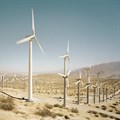
Ryno Jordaan, chief technology officer at New Southern Energy
Renewables experienced yet another year of record growth in power capacity, despite aftershocks from the pandemic and a rise in global commodity prices that upset renewable energy supply chains and delayed projects. In short, the top-level findings were that renewables generated 28.3% of global electricity in 2021, similar to 2020 levels (28.5%) and up from 20.4% in 2011. For the first time, the share of variable renewable energy generated by wind and solar mix exceeded 10% worldwide, which is significant.
Global investment in renewable power and fuels rose for the fourth consecutive year, reaching $366bn and solar PV maintained its record-breaking streak, adding 175GW of new capacity in 2021 to reach a cumulative total of around 942GW.
Despite supply chain disruptions, shipping delays, and rising prices for wind and solar energy components, renewable power capacity additions grew 17% in 2021 to reach a new high of more than 314GW of added capacity. The total installed renewable power capacity grew 11% to reach around 3,146GW, although this is far from the deployment needed to keep the world on track to reach net-zero emissions by 2050. However, what is clear is that renewables remain the most affordable energy source to both improve economic resilience and support decarbonisation.
Renewable energy support policies and targets
An interesting finding is that by the end of 2021, nearly all countries worldwide had a renewable energy support policy in place, continuing a multi-year trend of this number increasing. By the end of 2021, 169 countries and had in place some type of target (either economy-wide or in specific sectors) at the national and/ or state or provincial level to increase the uptake of renewables. By year's end, at least 135 countries and around 1,500 cities had some form of renewable electricity target. And, more than 40 countries have agreed to stop financing new coal plants.
Global capacity additions of centralised utility-scale solar PV increased around 20%, with 100GW of new installations, driven by the economic competitiveness of solar power and the attractiveness of power purchase agreements. Distributed solar PV installations rose around 25%, adding 75GW, driven by surging electricity prices that pushed entities to rely on self-consumption and to reduce their dependency on the distribution grid, where possible. South Africa’s sunny climate places us in an excellent position to pursue this further.
Global concentrated solar power capacity
In 2021, more than 1GW of combined concentrated solar power capacity (CSP) was under construction in Chile, China, the United Arab Emirates and South Africa. Most of this is based on parabolic trough technology and is being built in parallel with thermal energy storage (TES). By year’s end, 23GWh of TES in conjunction with CSP plants was operating across five continents, representing 40% of the global energy storage capacity outside of pumped hydropower.
In SA we have some of the most prolific concentrated solar plants in the world at Karoshoek, Kaxu, Khi and Xina, in the Northern Cape, with new ones currently under construction at Bokpoort and Redstone. They provide large-scale power generation and have been noteworthy in job creation, however, further allocation is absent from the current Integrated Resource Plan (IRP). Some argue that this technology is too expensive and takes too long to build versus wind and solar PV, but their ability to store energy for use in peak load shaving is highly beneficial.
Inclusive energy governance
The opportunities afforded by a renewable-based economy and society include the ability to achieve more diversified and inclusive energy governance through localised energy generation. It has been proven in multiple cases that countries with higher shares of renewables in their total energy consumption enjoy a greater level of energy independence and security, which is exactly what South Africa needs to aim for. A renewable energy policy with ambitious targets is key to accelerating progress in this regard.
Renewable energy has proven to be highly effective in increasing national resilience to shocks – such as climate change, pandemics, economic fluctuations and conflict. Energy access and gender equality also are strongly interlinked and are at the crossroads of the United Nations Sustainable Development Goals. South Africa has only committed to the Paris Agreement to be net-zero by 2050, which is still important but first things first, we need to stabilise our energy supply.
Opportunity abounds
Eskom CEO Andre De Ruyter has publicly stated that South Africa’s energy future hinges on adding a significant amount of renewable energy to the country’s pool. Last week, he laid out Eskom's vision for a just energy transition at the Africa Renewables Investment Summit held in Cape Town, and it was assuring to hear that renewables are central to his vision.
However, he is right to express empathy for small towns whose entire livelihoods depend on coal power stations. It would be against the spirit of ubuntu to simply close these plants and walk away and there is no need to as opportunity abounds. Many of these areas have available land to start building renewable plants, and the time to start upskilling and reskilling people is now. Not only will the apprehension regarding a shift to new forms of power be appeased, but we’ll avoid a potential bottleneck and yield results more quickly.











































